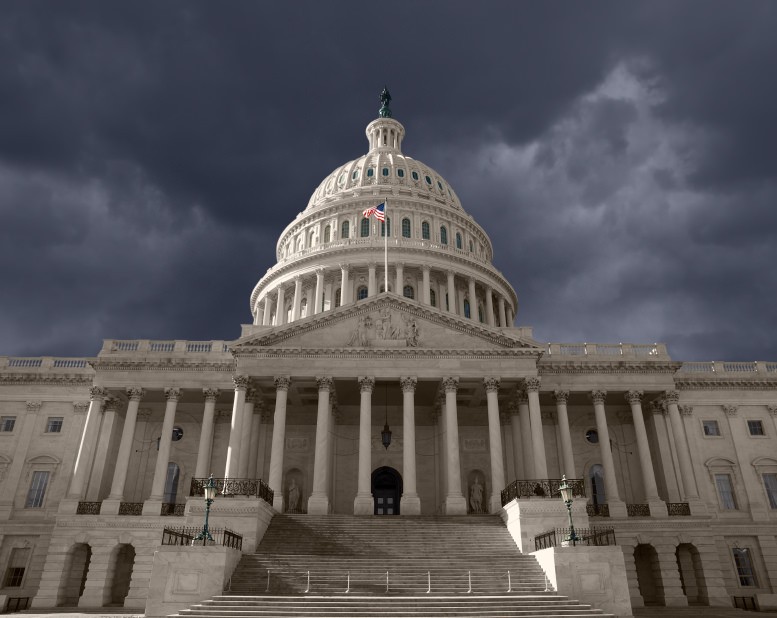In recent years, Congress has developed a nasty habit of taking previously unthinkable actions and making them into regular tools to be wielded in an attempt to win the attention of the news cycle for a couple of weeks, only to find a newer, unprecedented and equally self-destructive plan that will get them attention. From refusing to raise the debt ceiling to invoking a senate rule previously so unthinkable that it is called the “nuclear option” to shutting down the government, actions that for decades American lawmakers saw as destructive and potential career suicide to even suggest, have become commonplace in modern day political discussions. It does not even shock us anymore that our government may occasionally decide to not pay its bills and instead just close its doors for a couple of weeks.
Since the way budgeting in the United States was formalized in 1976, the government has shut down 21 times, but of those 21, only seven actually surpassed more than 10 days, with most of them “over the course of a weekend,” according to Marc Goldwein of the Committee for a Responsible Federal Budget. Of the seven that actually lasted more than 10 days, three of them have happened since the 1990s.
But most shocking is that within the past five years, we have already seen two, and now that the government has been temporarily reopened to find a new deal both sides have not indicated that anything has actually changed, with Trump promising that a wall will be built, despite Schumer saying directly that “(Democrats) will not support funding for the wall, pro-rated or otherwise.” President Trump put it best when he tweeted, “21 days goes very quickly,” a clue that this short window that Congress has given itself is not a sign that anything will actually be done.
So that puts a third government shutdown in five years on the table. This is a rapid turnaround from the idea that a shutdown is one of the most destructive political maneuvers a party can force. When Newt Gingrich and the Republican party shut the government down from Dec. 16 to Jan. 6, American voters turned on them immediately. Once the rising star of American politics who led one of the greatest midterm victories against a sitting president, Newt Gingrich became a political unperson, with his unfavorable rate doubling within a month. By 1998, Republicans lost seats despite it being a midterm election with a Democrat in the White House, and Newt Gingrich was asked to step down as speaker of the House, which he did.
Flash forward to 2013 and we are left with a vastly different picture. Congressional leaders could not come together to agree to raise the debt ceiling on money we had already spent and forced our government shut for 16 days. When the government finally reopened and Americans were able to cast their vote in the 2014 midterm elections over the conduct of their government, they voted to support the party that had shut down the government, giving Republicans a level of control over both chambers that had not been seen in almost a century. And now that discussions over border security seem to be too controversial to even discuss, the government shuts down again, denying 800,000 people paychecks and limiting access to federal parks and resources all across the country.
Both Democrats and Republicans are treating government shutdowns like a tool of rallying public opinion and outmaneuvering the opposition, when it is actually a self-destructive and cowardly way of refusing to govern that destroys credibility. Almost a million federal workers went without paychecks for a month and are currently working without the promise of the government staying open long enough to pay them for the hundreds of hours they have worked uncompensated. There was fear that food stamps and many assistance programs would run out of funding before a deal would be passed, parks have been left to their own devices and began losing around $400,000 every day in lost fees, and the federal courts only had enough funding to operate until the 25th, the same day that the government reopened. Had it dragged on any longer, cases without priority would have been delayed and civil cases would have been put on hold.
Both Democrats and Republicans are playing with fire if they think that a decision as destructive as shutting down the government is worth the political points they could hypothetically score, so long as the other side chickens out first. Had the shutdown gone on for “years” as President Trump suggested, we would be feeling the effects of a crippled government and all of its agencies for years. University of Tennessee professor and former senior economist for the President’s Council of Economic Advisors Marianne Wanamaker says that the unemployment rate may increase to 4.1 over an extremely short period of time and this shut down only lasted a month.
But even longer lasting is the loss of faith in government to effectively govern or even stay open for business and pay its bills. Mayors from across the country have decided to factor in the possibility for future government shutdowns, essentially betting that the government will continue to fracture and that it is up to the lower governments to look out for themselves.
That this self-destructive tool to attract attention and divide voters into armed camps is still being seen as a reasonable path forward is a sign that Congress has no interest in actually governing and is instead focused on talking points and divisive policies that get the disinterested out to vote based on emotion alone.
Follow Daily Wildcat on Twitter









